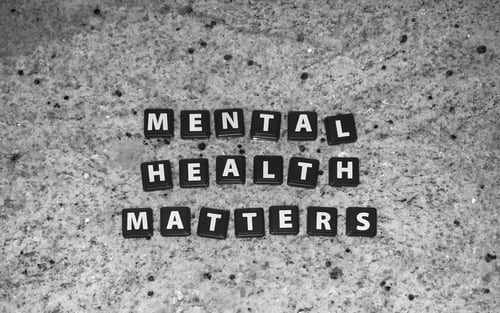Those with mental health disorders are almost twice as likely to die from COVID-19, data shows.
In a new study published in JAMA Psychiatry, researchers found that patients with mental health conditions were nearly twice as likely (1.8 times) to die from the coronavirus than patients without underlying mental health issues. The findings came from a review of 16 studies examining the medical records of more than 19,000 people in seven countries. The disorders studied included schizophrenia, bipolar disorder, depression, anxiety, personality disorder, eating disorders and substance abuse disorders and addiction.
“Patients with severe mental health disorders like schizophrenia and bipolar disorder were at particularly high risk of dying from COVID-19,” researchers said,” being more than twice as likely (2.3 times) to die than patients without mental health issues.” Those with bipolar disorder and schizophrenia are immune compromised, which could account for the high rate of co-occurrence.
Even when taking into account and controlling for other factors, such as obesity, age of the participants and other health factors, data showed a significantly higher probability of death in people with mental health conditions. They suggest there could be other factors increasing risk, including barriers in accessing healthcare, higher addiction rates, the effects of psychiatric medication and social factors known to influence outcomes. The purpose of the study is to encourage public health officials to do more to prioritize vulnerable groups.

In the studies reviewed, different types of depressive disorders were grouped together. The researchers said, “It is possible the mortality rates from COVID-19 differ for those with recurrent bouts of depression and those with an acute episode, which is more common and can be resolved with or without treatment and without later consequences.”
Patients “with mental health disorders should have been targeted as a high-risk population for severe forms of COVID-19, requiring enhanced preventive and disease management strategies,” researchers note. “Future studies should more accurately evaluate the risk for patients with each mental health disorder.”
Recent studies have shown that COVID-19 can lead to mental health disorders, including from the onset of neurological defects resulting from the virus. One study noted 23% of COVID-19 patients reported post-virus depression and 16% anxiety.
“The data are worrying,” said Paul Harrison, professor of psychiatry at the University of Oxford, of the prevalence of psychosis after a coronavirus infection. “As a psychiatrist, I think psychosis is a particularly interesting and important group, not to get lost between anxiety and mood disorders and stroke.”
Many people have struggled to access the care they need as existing resources are stretched thin. Those who are in crisis are at risk of not receiving the care they need. The pandemic has taken a long-term toll on healthcare and those who need to access it.
“We need urgent research to better understand how and, why, does this occur in patients with COVID-19 and how they can be treated and [how to] prevent it,” Max Taquet, a clinical fellow in psychiatry at the University of Oxford and a study co-author, said. “But we think that regardless of the explanation, health services need to be prepared for the increased demand that this data is showing.”
Sources:
People With Mental Health Disorders Nearly Twice As Likely To Die From Covid, Study Finds
Outbreaks of Untreatable, Drug-Resistant Fungus Spread in 2 Cities


Join the conversation!